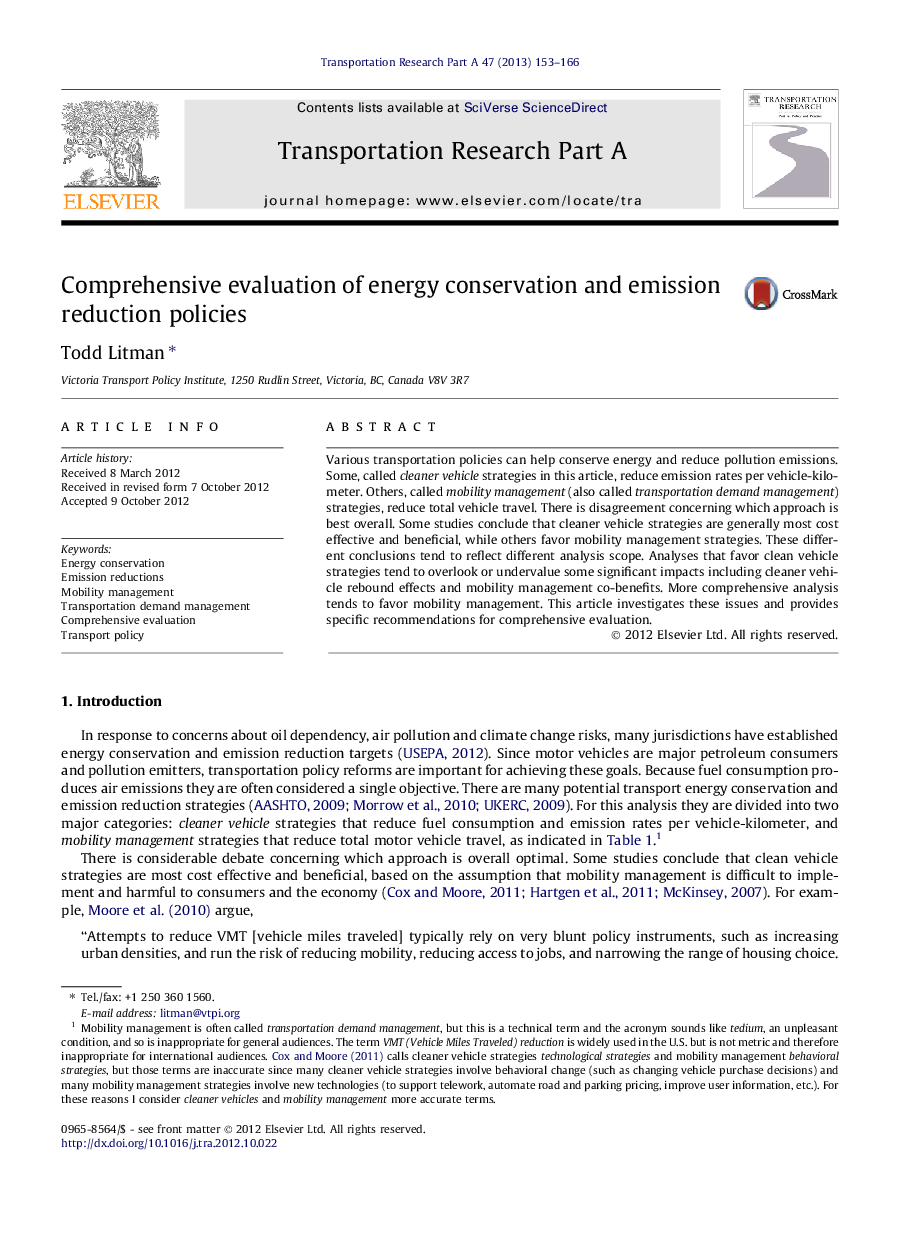| Article ID | Journal | Published Year | Pages | File Type |
|---|---|---|---|---|
| 311306 | Transportation Research Part A: Policy and Practice | 2013 | 14 Pages |
Various transportation policies can help conserve energy and reduce pollution emissions. Some, called cleaner vehicle strategies in this article, reduce emission rates per vehicle-kilometer. Others, called mobility management (also called transportation demand management) strategies, reduce total vehicle travel. There is disagreement concerning which approach is best overall. Some studies conclude that cleaner vehicle strategies are generally most cost effective and beneficial, while others favor mobility management strategies. These different conclusions tend to reflect different analysis scope. Analyses that favor clean vehicle strategies tend to overlook or undervalue some significant impacts including cleaner vehicle rebound effects and mobility management co-benefits. More comprehensive analysis tends to favor mobility management. This article investigates these issues and provides specific recommendations for comprehensive evaluation.
► There are many possible ways to encourage transportation energy conservation and emission reductions. ► Strategies that reduce vehicle travel provide co-benefits besides emission reductions. ► Clean vehicle strategies often increase vehicle travel which increases other costs. ► More comprehensive analysis tends to favor mobility management over cleaner vehicle strategies.
